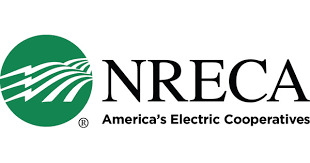When a retirement plan sponsor repeatedly stumbles into the same pothole, it’s fair to ask whether the trip was ever about protecting participants in the first place—or just about making the numbers work for the folks at the top. That’s the uncomfortable question now facing the National Rural Electric Cooperative Association (NRECA), which has once again found itself in the crosshairs of a class action lawsuit, this time brought by participants in its own 401(k) Pension Plan.
Filed in the Eastern District of Virginia by two current participants on behalf of a class exceeding 77,000, the lawsuit alleges years of mismanagement and self-dealing by NRECA and its fiduciary committee. The charges aren’t subtle. Plaintiffs claim the organization violated its fiduciary duties under ERISA by imposing excessive administrative fees and misusing plan assets to subsidize its own operations—a pattern that’s allegedly persisted despite prior regulatory slaps on the wrist.
Let’s not forget: this isn’t NRECA’s first dance with fiduciary failure. Back in 2012, the Department of Labor forced the organization to repay $27.3 million to benefit plans. Then came another $10 million settlement in 2019. Now, here we are again—another complaint, another pile of participant dollars allegedly siphoned off to support internal cost shifting and cross-subsidization. If the facts hold, it’s not just incompetence. It’s institutional memory loss at best—and indifference at worst.
The plaintiffs argue that instead of implementing necessary reforms, NRECA doubled down, ignoring warnings and continuing practices that padded the organization’s bottom line at the expense of those who entrusted it with their retirement savings. According to the complaint, the fiduciary committee allowed internal cost-sharing gimmicks that dumped disproportionate expenses onto the 401(k) plan—effectively turning participant accounts into a piggy bank for other benefit programs.
It’s worth noting that when you settle one fiduciary breach and then get hit with a near-identical lawsuit a few years later, plaintiffs don’t have to work too hard to establish a pattern. The call for restitution, plan reform, and court oversight isn’t just about cleaning up this mess—it’s about ensuring there isn’t a fourth time.
As someone who’s spent a career navigating the murky waters of retirement plan governance, let me be clear: fiduciary duty is not optional, and it’s not a marketing slogan. It’s a legal and moral obligation to act solely in the interest of participants. When that duty is abused, especially by organizations that ought to know better, the consequences should be as structural as they are financial.
Let’s see if this case finally delivers the clarity—and accountability—participants deserve.







